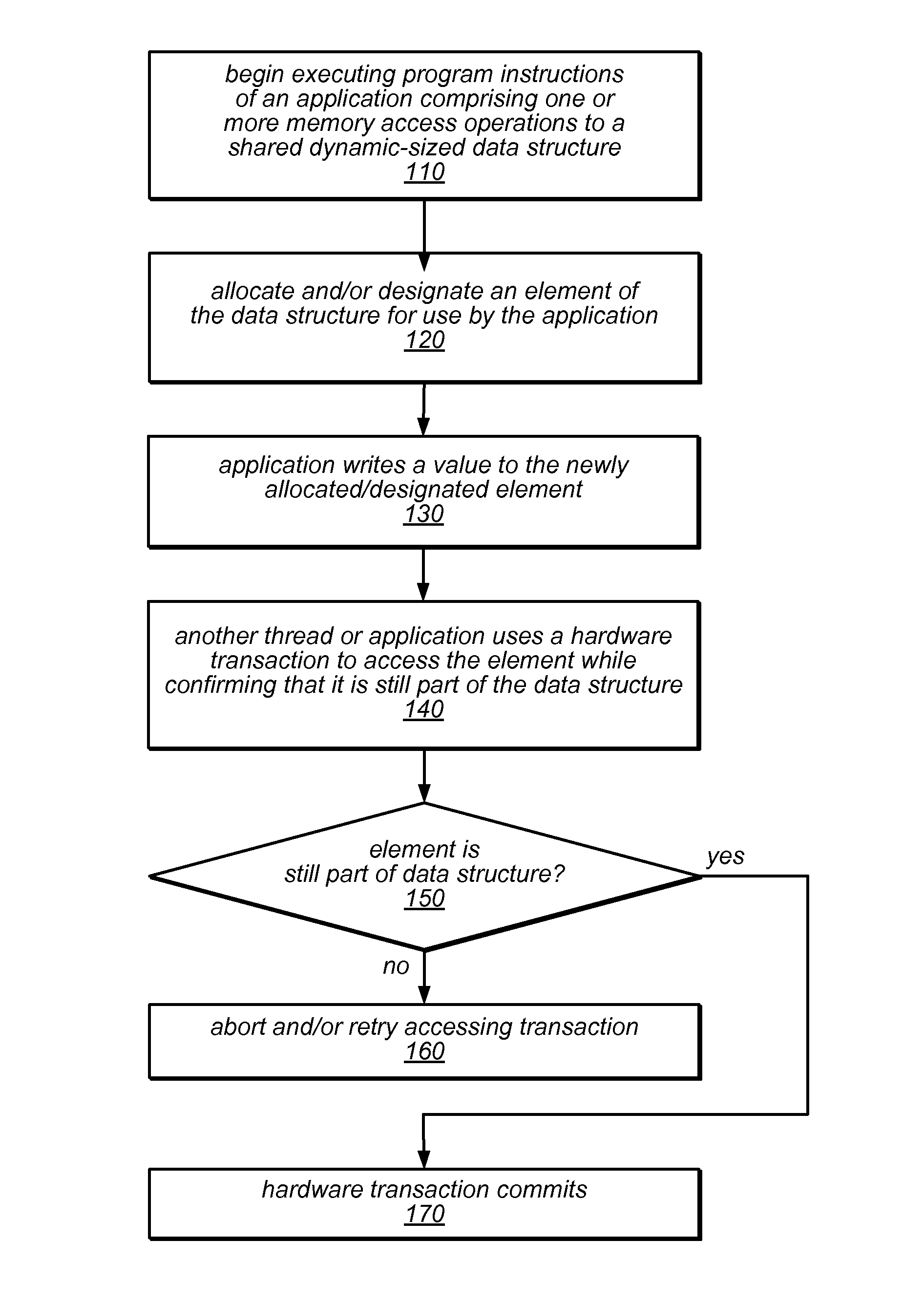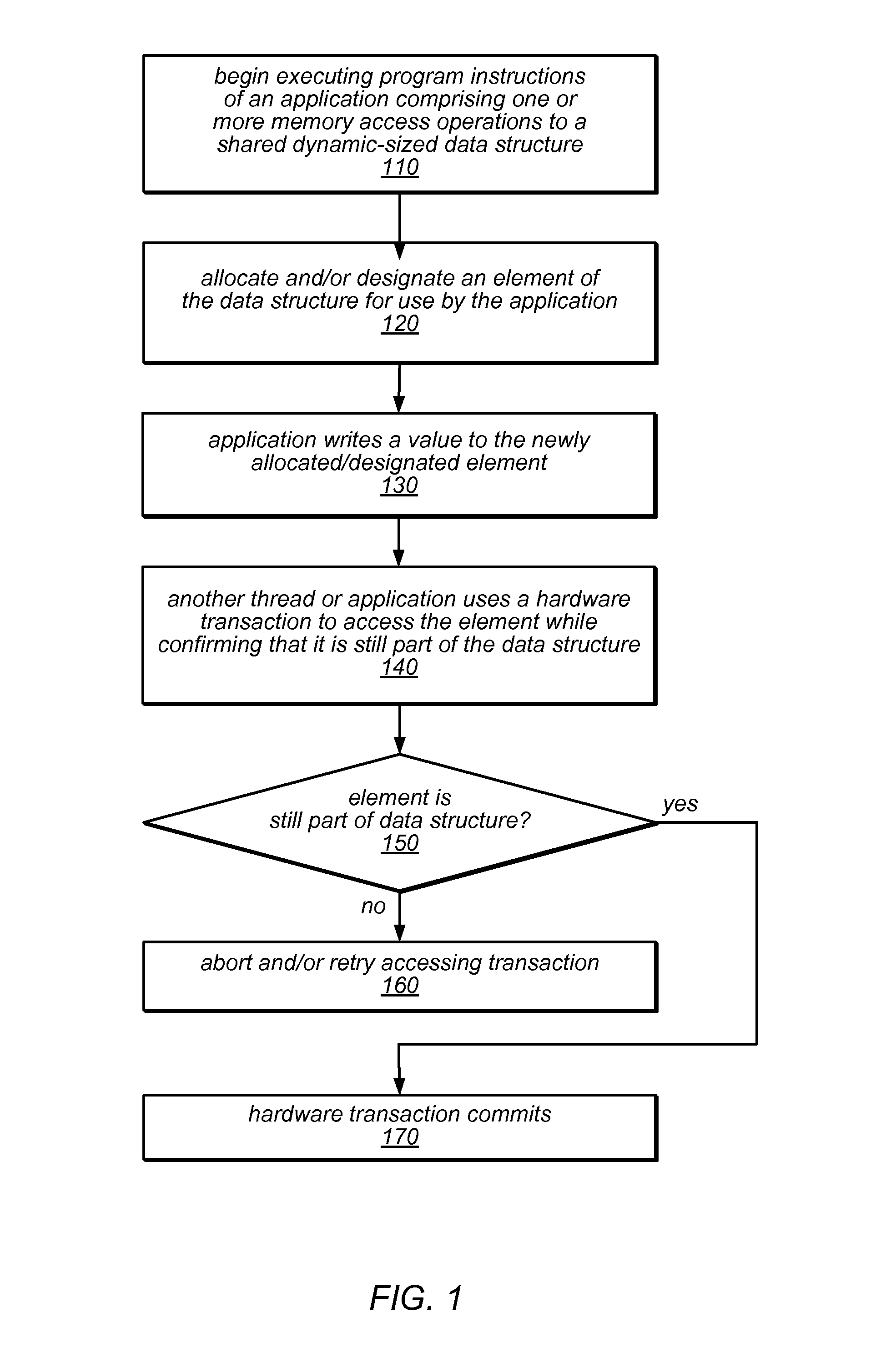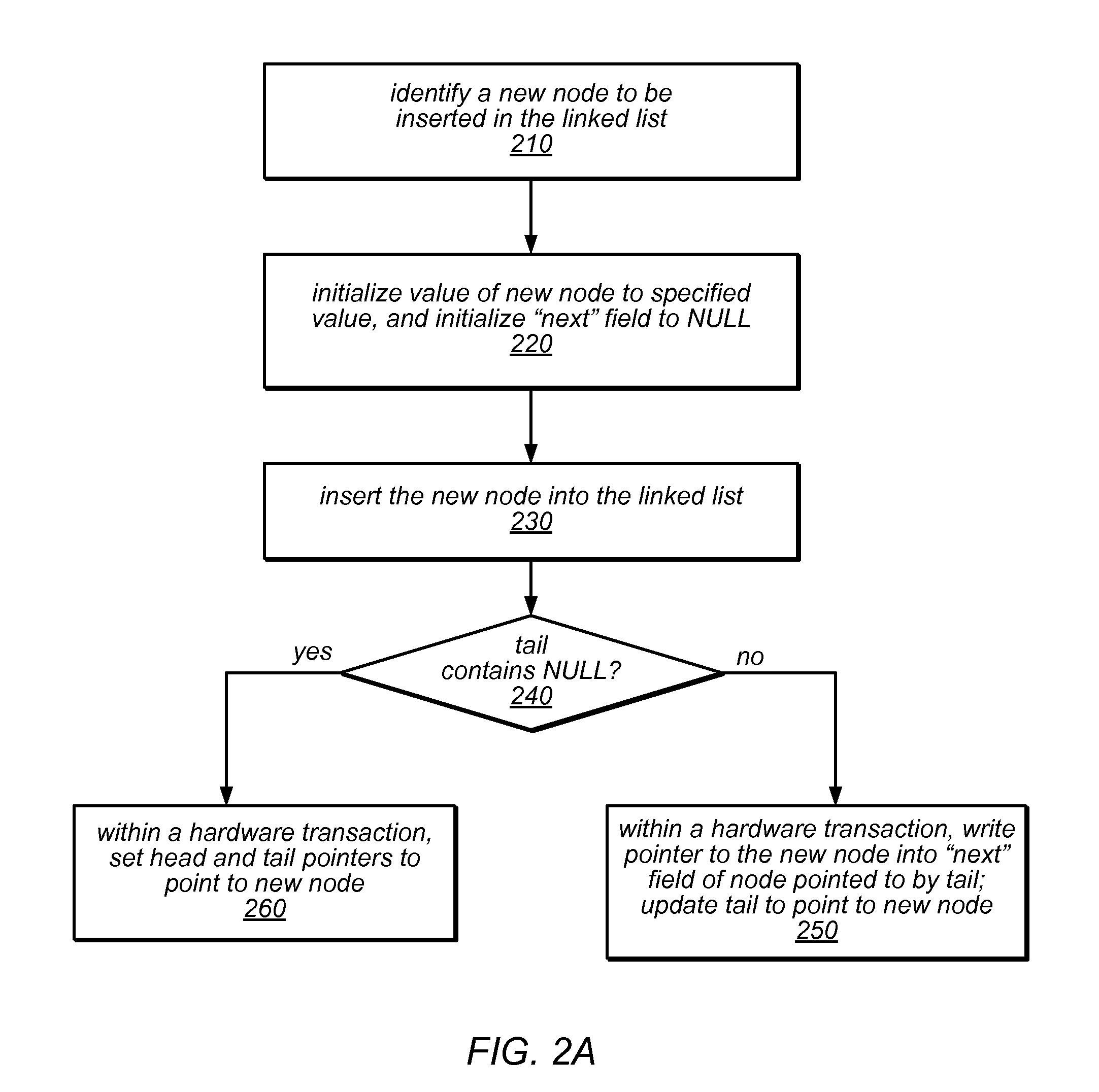System and method for performing memory management using hardware transactions
a hardware transaction and memory management technology, applied in the direction of instruments, program control, multi-programming arrangements, etc., can solve the problems of collecting operation, difficult to implement correctly for concurrent dynamic-sized data structures, and significant complexity in the design and implementation of practical concurrent data structures, etc., to facilitate the implementation of dynamic-sized concurrent data structures, improve memory management, and improve the effect of memory managemen
- Summary
- Abstract
- Description
- Claims
- Application Information
AI Technical Summary
Benefits of technology
Problems solved by technology
Method used
Image
Examples
Embodiment Construction
[0023]The system and methods described herein may in some embodiments exploit hardware transactional memory (HTM) to simplify and streamline memory reclamation for dynamic-sized shared data structures. For example, in some embodiments, HTM-based algorithms may result in simpler and / or faster solutions for the “dynamic collect” problem that lies at the heart of many modern memory management algorithms, and may demonstrate better memory reclamation properties than prior approaches to this problem. Experimental results have shown that such HTM-based algorithms can, in various embodiments, provide significantly better common-case performance, as well as reduced conceptual complexity. HTM-based implementations of several common concurrent data structures (e.g., a LIFO stack, a lock-free FIFO queue, a linked-list, and a dynamic array) are described herein, and these examples demonstrate that exploiting HTM may significantly simplify the design and implementation of such structures, partic...
PUM
 Login to View More
Login to View More Abstract
Description
Claims
Application Information
 Login to View More
Login to View More - R&D
- Intellectual Property
- Life Sciences
- Materials
- Tech Scout
- Unparalleled Data Quality
- Higher Quality Content
- 60% Fewer Hallucinations
Browse by: Latest US Patents, China's latest patents, Technical Efficacy Thesaurus, Application Domain, Technology Topic, Popular Technical Reports.
© 2025 PatSnap. All rights reserved.Legal|Privacy policy|Modern Slavery Act Transparency Statement|Sitemap|About US| Contact US: help@patsnap.com



